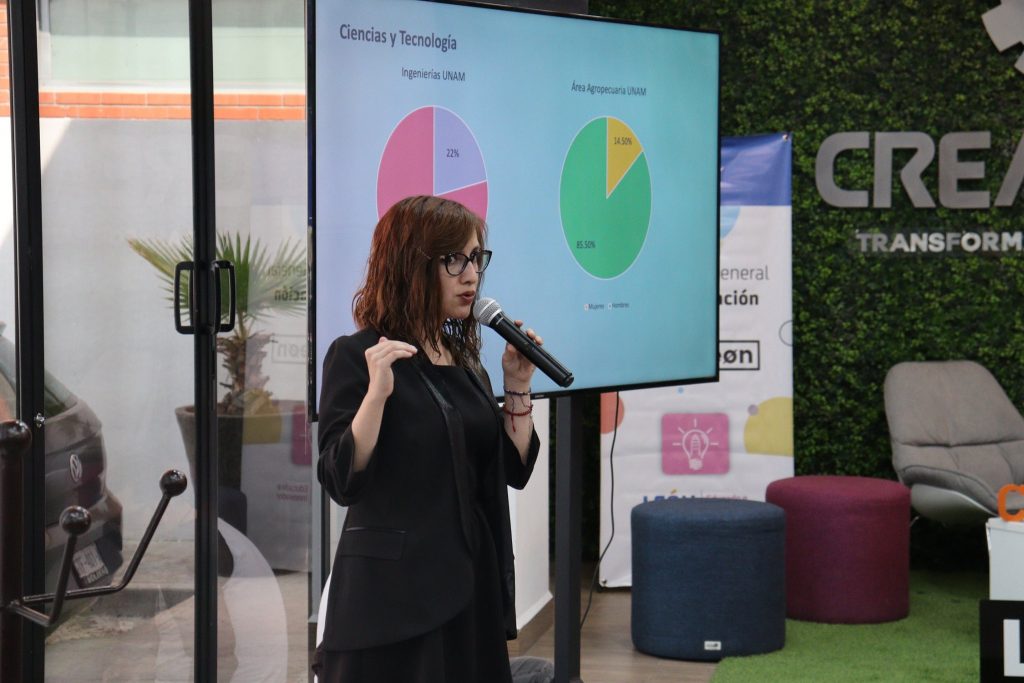On Saturday 7th March 2020, the tenth Open Data Day took place with people around the world organising over 300 events to celebrate, promote and spread the use of open data. Thanks to generous support from key funders, the Open Knowledge Foundation was able to support the running of more than 60 of these events via our mini-grants scheme.
This blogpost is a report by Ricardo Mirón from Future Lab in Mexico who received funding from the Foreign and Commonwealth Office to give visibility to women and the LGBT community in local decision making within government, business and civil society using open data.
At Future Lab’s Open Data Day, we aimed to give visibility to women and the LGBT community in local decision making within government, business and civil society using open data. This day served to unite the efforts of different sectors of society, in which we wanted to focus on a topic that is of special relevance in the context of our country, Mexico; where gender violence, discrimination and unequal opportunities are still very present.
For this we decided to partner with different actors:
- LAB León (https://www.facebook.com/lab.leon.DGI) the city’s public innovation laboratory. Providing the link with the government and opening databases for use during this day.
- Codeando Mexico (http://www.codeandomexico.org) one of the strongest communities and movements in the country in terms of civic technology and citizen participation.
- HERE Technologies (www.here.com) an international company that creates mapping solutions, put at our disposal the necessary infrastructure to be able to visualize the results of this day.
- CANACINTRA (https://canacintra-leon.org.mx) the National Chamber of the Transformation Industry is the body that represents the Industrial Sector of León, supporting with its facilities and willingness to carry out the event.
During the event, around 80 people participated, mostly young enthusiasts with different profiles such as data scientists, journalists, political scientists, architects and designers as well as several members of public agencies and private initiatives. There was a clear interest in people who usually had no experience in the topic – about half of the attendees had never worked with open data.
In order to contribute to the movement and culture that we want to promote in society and government, we held three workshops to add to the narrative of how we can create from different methodologies and tools:
- Open data workshop: (Gender equality) An analysis of public data on femicides in Mexico was carried out, using Tableau and different visualisations an infographic was created.
- Open mapping workshop: (LGBT community) A collaborative map was worked among the attendees, starting by geo-referencing points such as cafes, parks, offices and other safe spaces for the community. Subsequently, the data was loaded on a map and it was customised to show these points in a specific polygon in the city of León.
- Open source workshop: (Citizen participation) Participants contributed to a code repository on GitHub learning the methodology of participation in an open source project. With a focus on creating citizen collaboration projects.
As a conclusion, we know that constant and gradual work is needed to continue promoting the use of open data and open source and that real value is generated when we contribute to the solution of the different problems that we face together as society, we hope to add to the raising awareness of how discrimination in the LGBT community and gender inequality affects us all, hoping that this movement and this community will grow exponentially until materialising actions such as public policies, platforms and projects take place.









